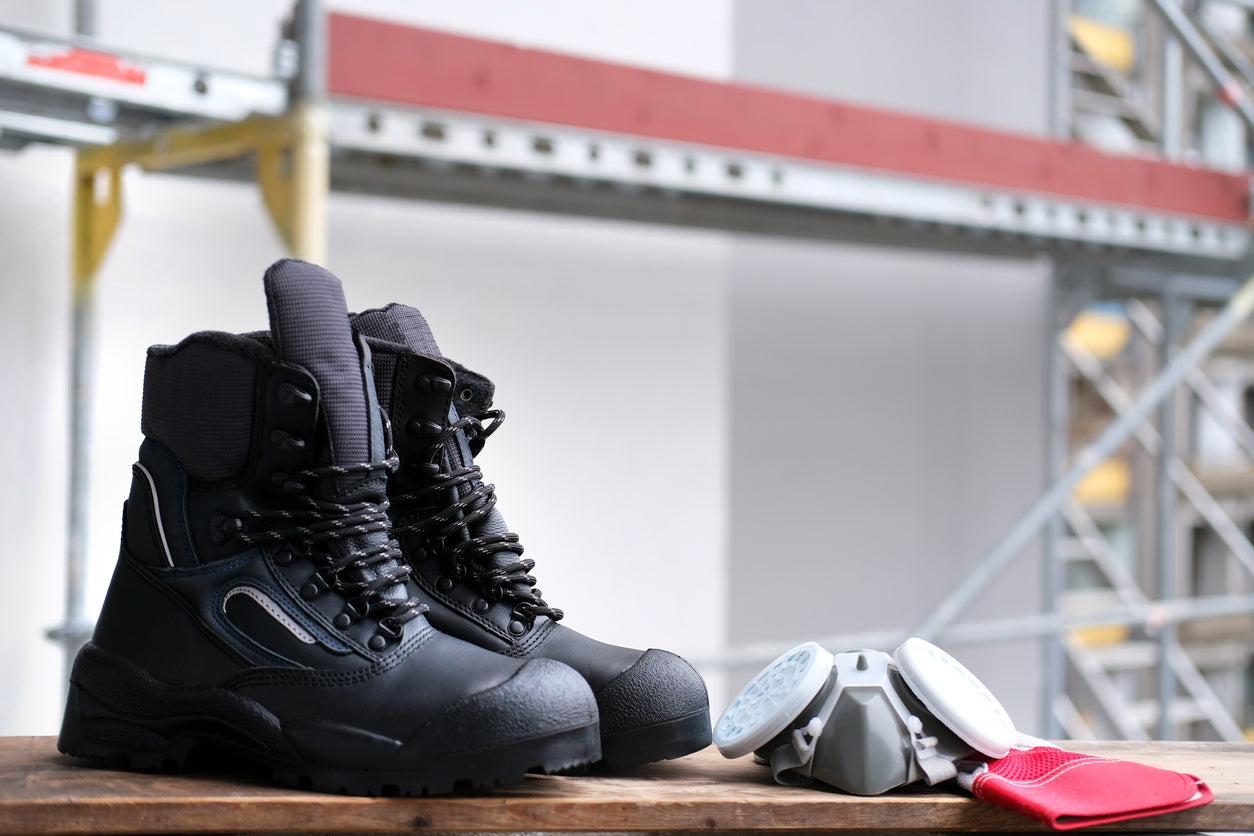Construction workers face numerous hazards on the job site daily, making safety gear a top priority. Among the essential protective equipment, steel toe boots stand out as a crucial item. In this article, we'll explore the requirements and importance of steel toe boots for construction workers.
The Requirement for Steel Toe Boots
1. Compliance with Safety Regulations
In many countries, wearing steel toe boots on construction sites is not just recommended; it's a legal requirement. Occupational safety and health regulations mandate the use of proper protective equipment, including footwear that meets specific safety standards.
2. Protection Against Falling Objects
Construction sites are often bustling with activity, and the risk of heavy objects falling is ever-present. Steel toe boots provide a robust barrier that can prevent severe injuries or even save lives when an object accidentally drops on a worker's foot.
3. Resistance to Puncture and Compression
Steel toe boots are designed to withstand puncture and compression forces. They offer protection against sharp objects on the ground, such as nails, shards of glass, or metal scraps, reducing the likelihood of foot injuries.
4. Electrical Hazard Protection
Some steel toe boots are equipped with electrical hazard protection. They are designed to reduce the risk of electrical shock by providing insulation and grounding to the worker.
The Importance of Steel Toe Boots
1. Preventing Foot Injuries
One of the primary reasons for wearing steel toe boots is to prevent foot injuries. These boots create a sturdy shield around the toes, significantly reducing the impact of falling objects. Even minor accidents can lead to severe foot injuries without the proper protection.
2. Enhancing Job Performance
Construction workers often spend long hours on their feet, and comfort is essential for job performance. Many steel toe boots are designed with ergonomic features that provide comfort and support, reducing fatigue and allowing workers to focus on their tasks.
3. Longevity and Durability
Steel toe boots are built to last. Their durability ensures that workers don't have to frequently replace their footwear, saving both money and time. Quality boots can withstand the rigors of construction work, making them a cost-effective choice in the long run.
4. Versatility
Steel toe boots are versatile and suitable for various work environments. Whether working on a construction site, in manufacturing, or in a warehouse, these boots provide the same level of protection and comfort.
5. Boosting Confidence and Safety Culture
Providing steel toe boots to construction workers sends a clear message that their safety is a top priority. This not only boosts confidence among workers but also fosters a safety-conscious culture on the job site, leading to fewer accidents and injuries.
Conclusion
Steel toe boots are not just a piece of footwear; they are a vital safety gear that construction workers should never be without. From legal requirements to preventing life-altering injuries, these boots play a pivotal role in ensuring the well-being and productivity of those working in the construction industry. Prioritizing the use of steel toe boots is a step in the right direction for both workers and employers in creating safer work environments.
FAQs
1. Are steel toe boots uncomfortable to wear for extended periods?
Modern steel toe boots are designed with comfort in mind. They often include features like cushioned insoles, arch support, and moisture-wicking materials to ensure that workers can wear them comfortably throughout their shifts.
2. Can steel toe boots be used in wet or slippery conditions?
Many steel toe boots are equipped with slip-resistant outsoles, making them suitable for use in wet or slippery conditions. However, it's essential to choose boots with the appropriate sole design for the specific work environment.
3. Are there alternative safety footwear options besides steel toe boots?
Yes, there are alternative safety footwear options, such as composite toe boots and alloy toe boots. These options provide protection similar to steel toe boots but may be lighter or offer different advantages depending on the worker's needs.
4. Do steel toe boots protect against chemical exposure?
While steel toe boots primarily protect against impact and compression, they may not provide adequate protection against chemical exposure. In environments where chemicals are a concern, workers should use specialized chemical-resistant boots.
5. Can steel toe boots be customized for individual foot shapes?
Yes, some steel toe boots offer customization options, including adjustable laces and insoles. Additionally, workers can choose from a variety of boot styles and sizes to find the most comfortable fit for their feet.

